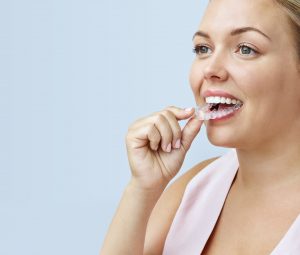As dentistry has progressed in preventive measures and treatments, many people have been better able to retain their own natural teeth.
However, as we age, there is a growing range of factors that can influence our oral health. These include changes in our physical and mental health, medications, changes in our physical abilities and the accumulative effects over time of past habits.
 What are some of the challenges of an aging mouth?
What are some of the challenges of an aging mouth?
Stability of old teeth and dental work.
As we use our teeth daily, over time we often start to see wear on teeth and any existing restorations (fillings, crowns and veneers); this wear might take the form of cracks or decay. Decay and cracks should be addressed in a timely manner. This may lead to more extensive dental work as the loss of tooth structure often require larger restorations or the need for crowns, root canal treatments or extractions.
A key consideration in treatment planning and maintenance is a focus on maintaining as much tooth structure as possible; this can help maintain the tooth’s strength and hopefully prevent further breakages or decay.
Unopposed teeth
If a tooth is unable to be saved and an extraction is unavoidable, then we need to consider long-term functioning of the teeth. In many cases, we’ll recommend replacing the tooth with an implant or a partial denture in order to keep the opposing tooth functioning and the bite stable. The loss of an opposing tooth (that is, a tooth opposite of another tooth) may contribute to a loss of function or impaired function.
Gum recession and periodontal disease (gum disease)
With the progression of gum recession and active periodontal disease, we can start to lose bone and gum around the teeth. This can then lead to mobile and symptomatic teeth. Often this damage is irreversible, so prevention and active maintenance are key factors in maintaining enough bone and gum.
Gum recession can lead to exposure of the tooth root surface, which can cause sensitivity and a vulnerability to decay. This decay can often develop fast, especially in the presence of plaque, a dry mouth, or other oral conditions, as root surfaces are softer compared with enamel and often quite plaque retentive.
Dry mouth
Dry mouth (xerostomia) is a common issue for many of our older patients. Saliva quality and quantity can be affected by certain medications, treatments such as radiation and chemotherapy, systemic diseases and environmental factors such as smoking or a high-caffeine intake. Saliva acts as a lubricant to keep gums healthy, teeth strong and helps with chewing.
Changes in ability
The potential loss of mental and physical abilities during aging can also make it harder to maintain a healthy mouth. More regular home care and oral hygiene, as well as dental visits, may be required to prevent or minimise detrimental changes.
What can we do to help?
Knowing what’s happening in your mouth and individualised strategies to treat changes are key in maintaining dental health. You may need regular visits to your dental professionals, including the dentist and dental hygienist, or referrals to other appropriate oral specialists such as oral medicine specialist, periodontists, endodontists or oral surgeons*.
Treatments and preventive products are often available once we identify risk factors and changes in the oral environment. Some risk factors are modifiable, such as poor oral hygiene, smoking and diet. These can be discussed with your dental professional to reduce these risk factors.
Possible protective dental treatments include crowns and overlays which can help to protect weakened teeth. Implants, bridges or partial plates can be used to replace missing teeth and give the opposing teeth something to bite against. Covering or sealing at-risk areas, as well as application of fluoride releasing products, can also be helpful.
Oral hygiene treatments and regular advice from your dental hygienist can help you treat active periodontal disease, stabilise treated disease and maintain health of the gums and oral environment.
There are many dental products to help treat dental conditions. These include products to help with saliva quality and quantity, such as Biotene and Oral 7. There are also high fluoride toothpaste and calcium phosphate products to help fight against decay and erosion, such as such Toothmousse. There are also many tools/aids to help improve oral hygiene and home care.
Talk to your dentist or hygienist for advice on which products may be best for you.
To schedule a check-up and clean, or to get in touch about any questions, please contact us today.
*Any surgical or invasive procedure carries risks. If you have any concerns about any risks or other aspects of any procedure, you may seek a second opinion from an appropriately qualified health practitioner before proceeding.




